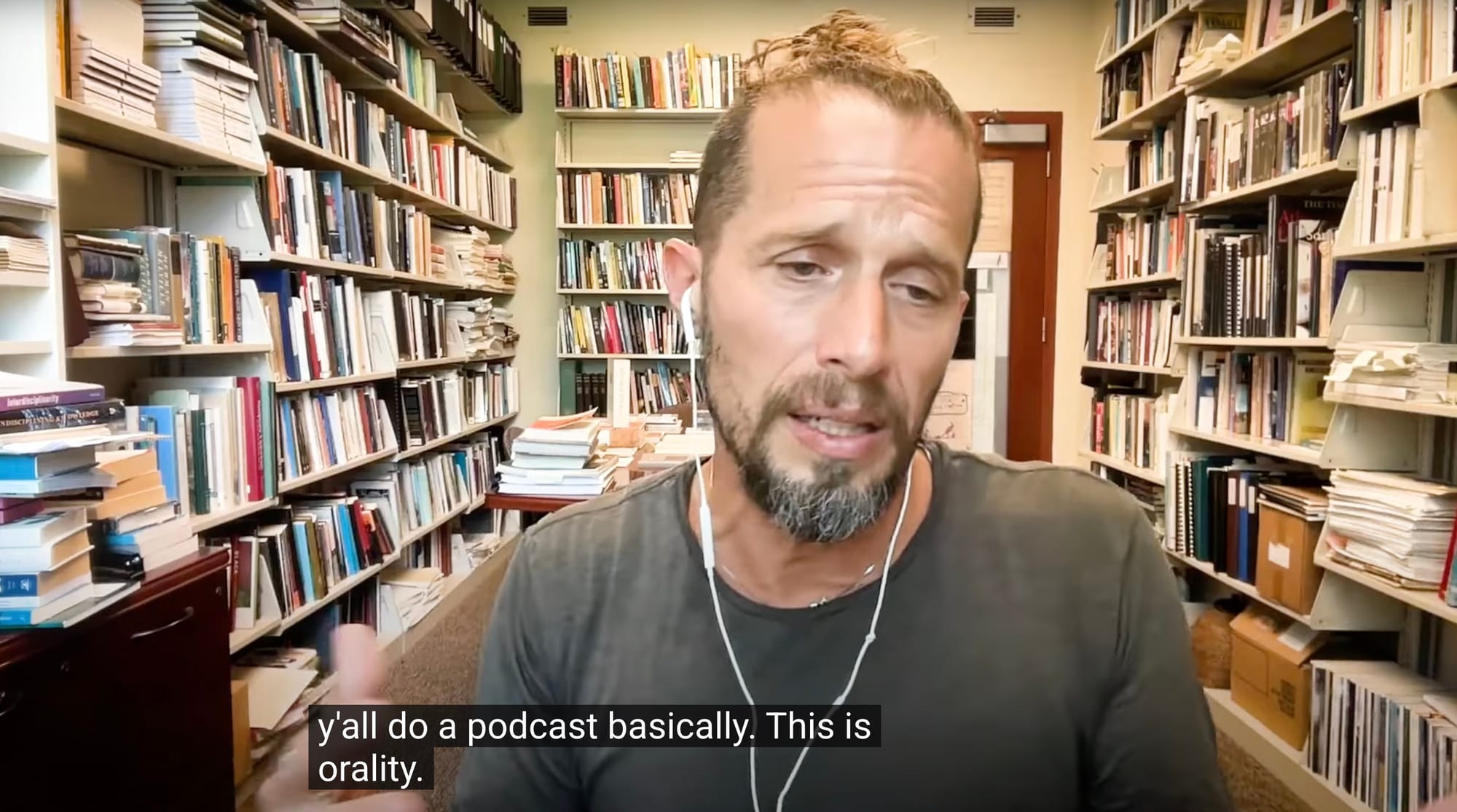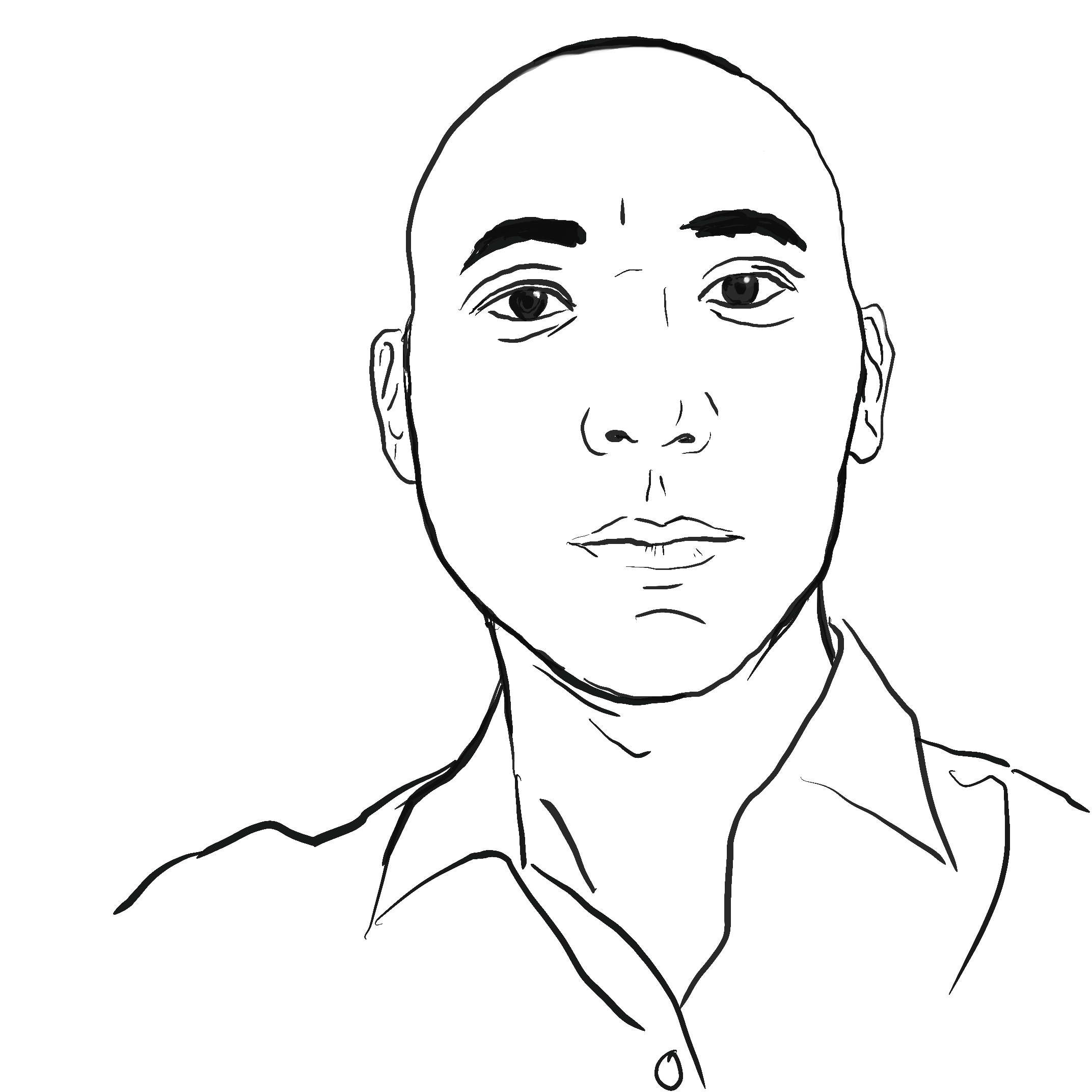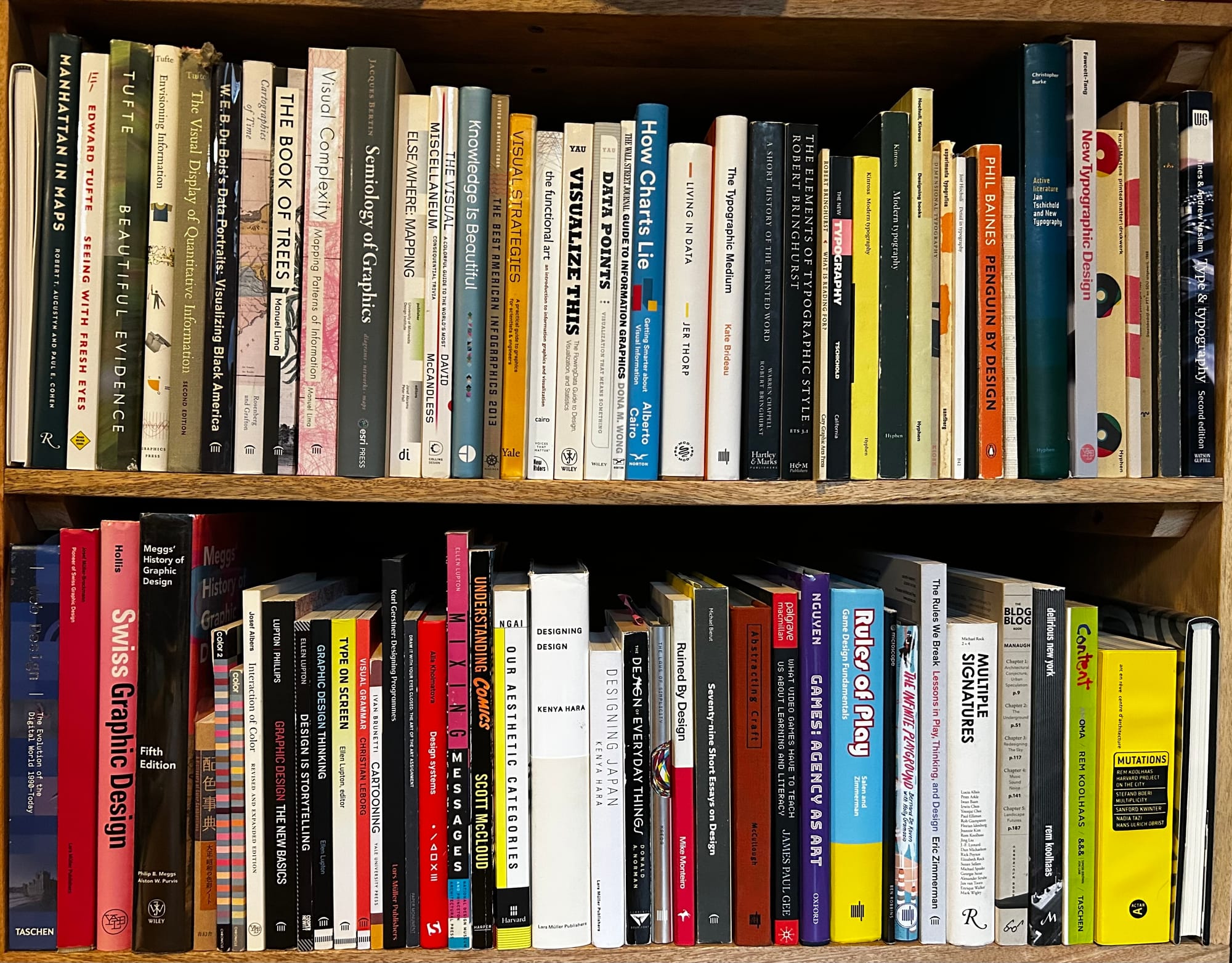Back to Life, Back to Orality
Journalism
Just last week, we heard this pronouncement from D. Graham Burnett, a historian of Science and Technology at Princeton on the Hard Fork podcast:
YouTube Short excerpt from a longer segment on the Hard Fork podcast featuring D. Graham Burnett.
Great insights here. Let's go through them line by line. Graham says:
Longform immersive literacy is coming to an end as a widespread cultural phenomenon.
"Longform immersive literacy" is such a good way to frame deep reading and books. I like the distinction he's deliberately making between deep, contemplative, analytical, "good" reading and fast, cursory, easily distracted skimming, "not so good" reading.
People do not read now like they did 10 years ago. They don't read like they did 2 years ago. They definitely don't read like they did 30 years ago.
And people are not going to get stupider. People are getting smarter. But their ability to immerse themselves in a tradition that presents itself like this (points to a shelf of books) is finished.
Maryanne Wolf is one of the best people to listen to on this — she's an expert on reading and brain, author of one of my favorite books on the subject, Proust and the Squid. In her most recent book, Reader, Come Home, she asks: "Will the mix of continuously stimulating distractions of children's attention and immediate access to multiple sources of information give young readers less incentive either to build their own storehouses of knowledge or to think critically for themselves?"
Here, Burnett is basically suggesting that the traditional form of longform immersive literacy (the book) is basically over. I think it's not that black and white. I don't think immersive book reading is necessarily going extinct — I think we will and we are finding new techniques to make these slower cognitive processes Wolf talks about possible. Just like journalism, the old form of the print newspaper is fading, we are finding new ways of getting the news, and longform investigations and deep dives are finding their way to new forms. They just may not be where we were used to looking for them (in paper magazines and newsprint). In fact, this is what Burnett suggests next:
I mean that's why y'all do a podcast basically. This is orality.
Like, once upon a time you'd have been journalists writing long pieces. You each kind of have been that, but in fact, now this is what journalism increasingly is.
So we are moving into a culture of orality, but we have a humanistic structure within modern colleges and universities that are still rooted in textuality, but that's finished.
This sounds quite stark on its face, and I think Burnett is sounding the alarm and doing it provocatively. But if you listen to the entire interview (which you should), he makes a very cogent argument that needs to be heard widely and discussed. There need to be new kinds of schools, he argues, not bound to the same traditions as the ivy-cloaked ivory towers, and this is where the new kinds of attention on orality (both in terms of the study of oral literature and in terms of knowledge transmission) comes in. I completely agree and I want to be a part of those new schools.


Comments